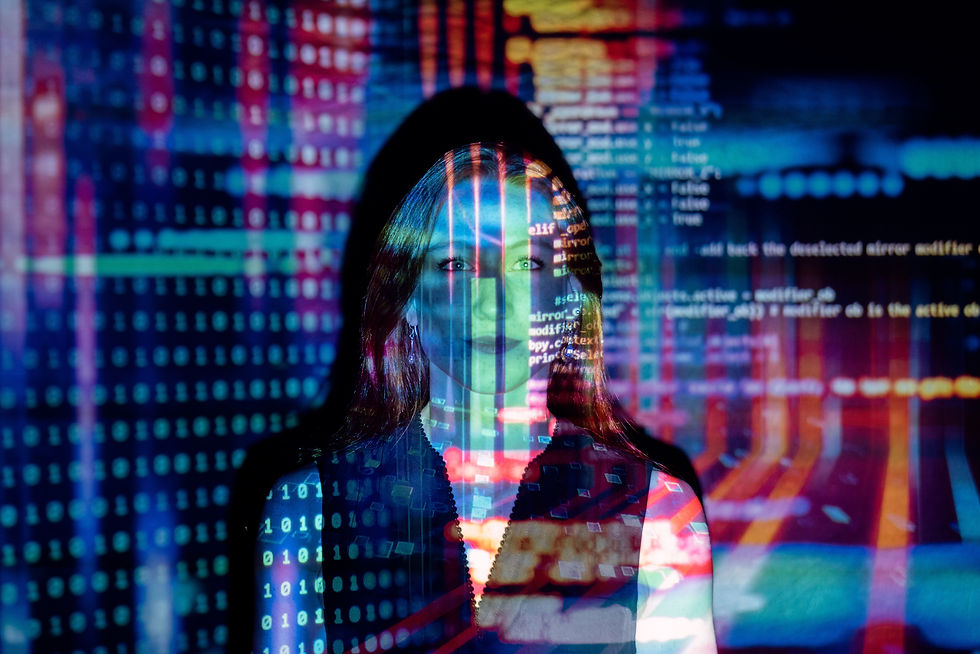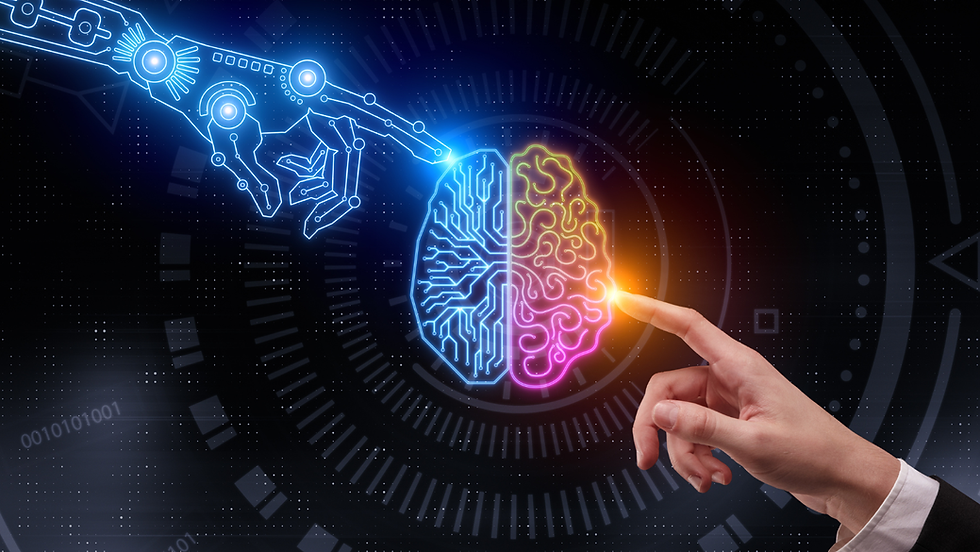The Evolution of Artificial Intelligence throughout the years
- Aug 10, 2023
- 3 min read
Updated: Feb 7, 2024

Author: Garima Digadrshika Publication date: 12.08.2023
Artificial Intelligence (AI) is a transformative technology that has gained immense popularity. It has evolved and advanced at a remarkable pace. From its early roots in the 1950s to the present era of cutting-edge, AI technology has transformed industries.
New AI has reshaped society and captured the imagination of people worldwide. What’s more, AI has revolutionized industries from virtual assistants like Siri and Alexa to self-driving cars and recommendation systems. Let’s have a journey through the evolution of AI, exploring its key milestones.
The Birth of Artificial Intelligence
The concept of artificial intelligence can be tracked down to the 1950s. Pioneers like Alan Turing, John McCarthy, and Marvin Minsky laid the foundations of AI programming. Turing introduced the idea of a "universal machine" capable of simulating human computation. McCarthy coined the term "artificial intelligence", which marked the birth of AI as a distinct discipline.
The Symbolic AI Era
In the 1950s and 1960s, AI research primarily focused on symbolic or rule-based systems. Therefore, Early AI technology demonstrated the ability to solve logical puzzles and mathematical problems. However, New AI aimed to represent knowledge using formal rules and logic. This enabled computers to reason and make decisions.
Moreover, Later In the 1980s and 1990s, AI technology experienced a shift towards machine learning techniques. Therefore, New AI programming neural networks were inspired by the human brain's structure. This artificial intelligence evolution paved the way for advancements in pattern, speech, and image processing.
Practical Applications of AI
The early 2000s witnessed practical applications of AI in various domains. Especially when Speech recognition technology became commercially available. AI companies introduced virtual assistants like Siri and Alexa. AI programming powered recommendation systems that revolutionized e-commerce. What’s more, AI fosters personalized user experiences. On the other hand, AI detection tools enabled advancements in facial recognition and object detection.

Apart from that, AI is applied in healthcare, finance, and autonomous vehicles, among other fields. AI Technology like natural language processing and sentiment analysis enabled machines to understand and interpret human language. As a result, this led to the development of AI chatbots and virtual customer assistants.
Ethics and Bias in AI
As AI continued to advance, ethical considerations gained prominence. Additionally, concerns about bias in AI algorithms and their impact on society prompted discussions. Discussions about fairness, accountability, and transparency. Therefore, researchers and practitioners recognized the need for explainable AI. Explainable AI ensures that humans can trust and comprehend the decisions made by AI companies. Furthermore, The development of ethical frameworks, regulations, and responsible AI practices is crucial. So that the responsible and equitable deployment of AI technologies is ensured.
Future Directions of AI
Today Artificial intelligence is deeply integrated into our daily lives. It powers voice assistants, fraud detection systems, and personalized recommendations, among many other applications. In addition, state-of-the-art models like GPT-3 have pushed the boundaries of natural language processing. New AI demonstrates human-like language generation capabilities.
Looking forward, the future of AI holds cosmic potential. Advancements in quantum computing, robotics, and neuro-inspired architectures. This may unlock new possibilities for AI. So, by understanding the basics and impact of AI, we can appreciate its transformative power across industries.





Comments